on behalf of the author: Anaïs Remili
Impostor syndrome (the persistent self-doubt and feeling of inadequacy) is something many of us know all too well. As early-career researchers in marine mammal research, we often find ourselves wrestling with self-doubt, fearing that we don’t truly belong in this field, and questioning whether our successes are just a matter of luck. If you’re reading this, you’re likely on a similar journey, navigating the challenges of academia while trying to establish yourself in a competitive and demanding field. So today, let’s talk about the realities of academia, the psychological toll of impostor syndrome, and explore strategies to overcome it.
Disclaimer: I am not a psychologist, but rather someone who has personally struggled with impostor syndrome and mental health challenges throughout my (still early) career. I continue to navigate these issues daily. However, I am sharing these reflections and strategies in the hope that they might resonate with others facing similar struggles. Please note that, while I offer these thoughts and suggestions, they are not a substitute for professional mental health advice.
The harsh realities of academia
When we first entered academia, many of us were drawn by the excitement of scientific discovery and the opportunity to contribute to wildlife conservation. However, the reality of academic life is often much more complex and challenging than we anticipated. As early-career researchers, we face significant pressures to publish good-quality work regularly, secure funding/scholarships, and establish ourselves as experts in our field, all while trying to survive financially, eat enough veggies, exercise, and maintain a normal social life.
For us studying marine mammals, the challenges are even more pronounced, because of the extreme competitiveness within our field. The reality is: there are few seats at the table, and only the most “motivated” persist. This competitive nature of academia can intensify negative feelings like self-doubt, as we compare ourselves to peers who always seem to be more successful, more published, or more recognized. On top of this, when we study endangered or charismatic species, we’re not just navigating the academic landscape—we’re also dealing with intense stakeholder and public interest, scrutiny and strong opinions. Our research may become a focal point for debates about conservation, ethics, and environmental policy. The constant need to defend or justify our work to both academic peers, stakeholders and the public or decision makers can heighten impostor syndrome, making us question whether we’re truly up to the task.
The rat race to “publish or perish”
The pressure to publish is a well-known aspect of academic life, but its impact on early-career researchers is particularly intense. Despite Academia’ attempts to value other achievements, under the San Francisco Declaration on Research Assessment (DORA) for example, publications remain one of the main currencies of academia. They often determine our career trajectories, access to funding, and professional reputations. For marine mammal researchers, the challenges of publishing are complicated by the need to gather limited data from challenging environments, often with scarce resources, and “wonky” results.
The demand for publications can lead to a sense of ineptitude, as we feel that we must constantly produce new findings to stay relevant. This pressure is often internalized (as mental health remains a taboo topic in Academia), with many of us believing that our worth is tied to our publication record. The fear of not publishing enough—or not publishing in prestigious journals—can lead to a cycle of self-doubt and anxiety.
Balancing humility and self-promotion
In academia, we’re often taught the importance of humility—acknowledging the limitations of our work, recognizing the contributions of others, and remaining open to criticism. Yet, the realities of securing funding, attracting collaborators, and building a professional reputation require a degree of self-promotion that can feel like it’s clashing with this humility we’re taught to embrace. As early-career researchers, striking the right balance between being humble and effectively promoting our work can be particularly challenging. Presenting ourselves in the best light is essential for securing grants, job opportunities, and recognition. However, it can create a tension between our desire to be authentic and the need to project a polished, confident image. All of this can continue to fuel our impostor syndrome.
The psychological impacts of Impostor Syndrome
Impostor syndrome can have profound psychological effects, including chronic stress, anxiety, and depression. The constant fear of being exposed as a “fraud” can lead to a cycle of overwork, as we feel the need to constantly prove our worth. This can result in burnout, a state of physical and emotional exhaustion that further destroys confidence and productivity.
Feelings of inadequacy, shame, or fear of failure may lead us to hesitate in seeking help or collaborating with others, fearing that our “incompetence” will be noticed—or worse, exposed. This isolation can further reinforce feelings of inferiority, as we miss out on opportunities for mentorship, collaboration, and support.
So how do we help ourselves?
- Our (and your) feelings are valid
The first step in overcoming impostor syndrome is recognizing and acknowledging these feelings of self-doubt and inadequacy. It’s important to understand that these feelings are common, especially among high-achieving individuals in competitive fields like marine mammal research. In fact, even the most successful professors experience impostor syndrome. If you don’t believe me, go ask them. Acknowledging these feelings can help reduce their power over us. You are right to feel the way you do, and your feelings are valid. Allow yourself to feel these emotions without judgment and remind yourself that it’s okay to struggle.
- Turning negative thoughts into positive ones and focusing on growth
Cognitive reframing is a powerful tool for managing impostor syndrome. It involves identifying negative thought patterns and actively challenging them. Instead of thinking, “I’m not good enough to be in this field,” we can reframe it to, “I’m learning and growing in a challenging field, and it’s okay to have doubts.” Reframing helps to shift the focus from self-doubt to self-compassion and growth. It is most effective when we remember to practice it regularly, before we get too overwhelmed. If you are not sure how to proceed with cognitive reframing, seeking help from a mental health professional may help you recognize and deconstruct these negative thoughts when they appear next.
- Building a support group and celebrating the small victories
Building a support network is crucial for overcoming impostor syndrome. We can seek out mentors, peers, and colleagues who can provide guidance, reassurance, and constructive feedback.
For example, the grad students in my lab during my PhD formed a non-judgmental support group to vent, confess our feelings of inadequacy, create a safe space, and share our struggles. This sense of community helped normalize our feelings of self-doubt and provided a space where we could reassure each other, and celebrate our achievements, no matter how small.
Additionally, reaching out to your advisor directly can be incredibly beneficial. Advisors often have firsthand experience with impostor syndrome themselves and can offer valuable insights and support based on their own experiences. They can help validate your concerns, provide perspective, and guide you through managing these feelings effectively.
It is important to take the time to celebrate our achievements, no matter how small they may seem. This can help counteract the tendency to downplay successes and focus only on “failures”. Keeping a record of accomplishments, such as completing fieldwork, submitting a paper to a journal, writing one paragraph of a manuscript, or receiving positive feedback on a presentation, can serve as a reminder of our progress and capabilities.
- Self-compassion and realistic expectations
Being kind to ourselves is essential when dealing with impostor syndrome, but it is often easier said than done. I often find myself in distress when I fail at something—whether it’s not getting a scholarship, having a paper rejected, or facing setbacks in my research. My first reaction is usually to surround myself with dark thoughts, spiraling into self-criticism, shame and doubt. It is a familiar cycle: the feeling that I’m not good enough, that I’ve let myself and others down.
However, with time, I usually manage to pull myself out of this mindset, though not as quickly as I’d like. I eventually realize that I’ve been far too harsh on myself. If the same thing happened to one of my labmates, I would know how to reassure them, reminding them that setbacks are a natural part of the process and that their worth is not defined by a single failure. This realization often makes me pause and ask: Why am I not offering myself the same compassion and understanding?
We’re often biased when it comes to ourselves and can be quick to judge our own shortcomings. But it’s important to remember that we, too, deserve our own compassion. Engaging in practices like yoga or mindfulness can support this. Yoga, for example, promotes a connection between mind and body, facilitating inner peace and acceptance, which can help reduce harsh self-criticism and build a more compassionate mindset.
On top of self-compassion, setting realistic goals and expectations for ourselves is crucial. It is okay not to have all the answers or to experience setbacks. Realizing this can help build our confidence and reduce the chance of feeling overwhelmed by unrealistic expectations. By being more realistic and empathetic, we can encourage a healthier mindset that supports growth, learning, and perseverance in our research journeys.
- Seeking professional help, not a sign of weakness, but a sign of strength
If impostor syndrome is significantly impacting our mental health or professional life, seeking help from a mental health professional can be a valuable decision. Therapy can provide tools for managing anxiety, building confidence, and addressing the underlying causes of impostor syndrome. Speaking from experience, I reached a point at the end of my PhD where I realized I could not navigate these feelings on my own anymore. The constant self-doubt and pressure had become overwhelming, and I knew I needed professional help to move forward.
Therapy became an important part of my journey. It provided me with strategies to challenge negative thought patterns, take a deep breath instead of spiralling, and develop a more balanced perspective on my achievements and setbacks. While my therapy has paused for now, I recognize that this is an ongoing process. I will most likely need to return to therapy in the future to continue working on myself and deconstructing these negative feelings.
Seeking professional help is not a sign of weakness; it is a proactive step toward taking care of our mental health and ensuring that we can continue to thrive in our careers and personal lives. Whether it is a temporary measure during particularly challenging times or an ongoing support system, therapy can be an invaluable resource in our efforts to overcome impostor syndrome. Many universities have wellness support systems to help you access mental health resources and should probably be on your list if you are thinking about getting professional help.
- Talking about it to help each other
Talking about impostor syndrome and sharing our challenges can be a powerful way to raise awareness and support fellow early-career researchers who might be struggling in silence. By discussing our challenges openly, we can help break the stigma around mental health and academic stress, making it clear that these issues are common and that it’s okay to seek help.
Sharing our stories and strategies online can also create a sense of community for those who may not have a support group in their immediate environment. When we speak up about our struggles, it not only validates our own experiences and feelings but also reassures others that they are not alone. This collective effort to bring these issues into the open can promote a more supportive and understanding academic culture. So please don’t be afraid to talk about impostor syndrome and how it affects you.
Resources
Online communities:
- The SMM student and early-career researcher Discord channel
- Reddit: Academic Psychology
- Facebook groups: Women in Marine Mammal Science / Marine Biologists Network and Support
- Instagram: Academic Chatter
Peer-reviewed research:
- Jaremka, Lisa M., et al. “Common academic experiences no one talks about: Repeated rejection, impostor syndrome, and burnout.” Perspectives on Psychological Science 15.3 (2020): 519-543.
- Bravata, Dena M., et al. “Prevalence, predictors, and treatment of impostor syndrome: a systematic review.” Journal of general internal medicine 35 (2020): 1252-1275.
- Doran, Annemarie. “Navigating the maze: challenges faced by early career researchers.” Irish Educational Studies 42.4 (2023): 473-474.
Information about the author:
Anaïs Remili is a postdoctoral fellow at Simon Fraser University (Vancouver, Canada), studying ecotoxicology in marine mammals, with a focus on killer whales. She is also the editor-in-chief of Whale Scientists, a marine mammal website by early-career researchers.
> Find Anaïs on: Instagram BlueSky LinkedIn
—
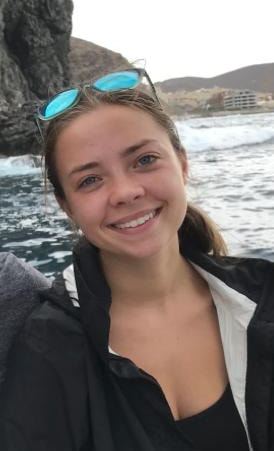 Congratulations to Emma Chereskin for winning the Louis M Herman Research Scholarship 2024 for her proposal;
Congratulations to Emma Chereskin for winning the Louis M Herman Research Scholarship 2024 for her proposal;
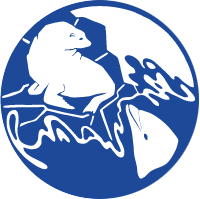 Greetings SMM Members!
Greetings SMM Members!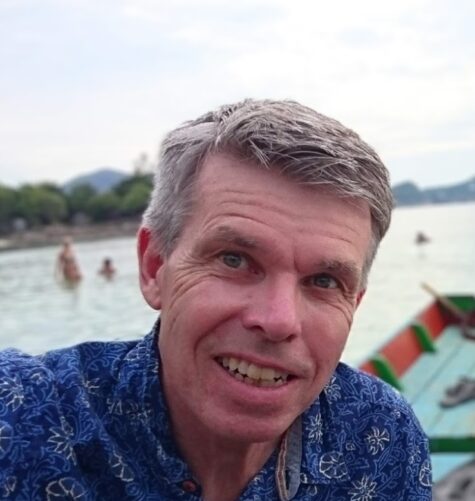 I am a professor in marine megafauna conservation at Newcastle University, UK. I have devoted my career to conservation of data poor species and development of low-cost methods for assessment and threat mitigation. I have developed and trial (in Brazil and Peru) upcycled glass and plastic bottles as no-cost methods to reduce dolphin bycatch in gillnet fisheries and develop low-cost PAM systems that send data back to land. I assessed porpoises in Sweden for my PhD while researching porpoises and dolphins in Canada & Australia. In 1998, I launched a project in Zanzibar training East African and international students to assess marine mammals and small-scale fisheries. I lead similar work in Cambodia, Indonesia & Thailand and conduct research on spotted seals in China and marine mammals off Newcastle. I am a member of the IUCN Cetacean Specialist Group and on the Expert Panel for IWC’s Bycatch Mitigation Initiative.
I am a professor in marine megafauna conservation at Newcastle University, UK. I have devoted my career to conservation of data poor species and development of low-cost methods for assessment and threat mitigation. I have developed and trial (in Brazil and Peru) upcycled glass and plastic bottles as no-cost methods to reduce dolphin bycatch in gillnet fisheries and develop low-cost PAM systems that send data back to land. I assessed porpoises in Sweden for my PhD while researching porpoises and dolphins in Canada & Australia. In 1998, I launched a project in Zanzibar training East African and international students to assess marine mammals and small-scale fisheries. I lead similar work in Cambodia, Indonesia & Thailand and conduct research on spotted seals in China and marine mammals off Newcastle. I am a member of the IUCN Cetacean Specialist Group and on the Expert Panel for IWC’s Bycatch Mitigation Initiative. I am a Professor of Marine Ecology & Conservation Biology at the University of Auckland – Waipapa Taumata Rau, in New Zealand – Aotearoa. My research spans the tropics to Antarctica, oceanic and coastal waters, big cities to remote islands, using multi-disciplinary approaches with many collaborators. I have several leadership roles nationally and internationally and always take a pragmatic approach, with the animals at the centre of all my work. I always work with others, thinking creatively, and integrating research approaches, critical components for success. I actively support our future – the students and emerging researchers. I’ve been a SMM member since 1991, am on the IUCN – SSC and Marine Mammal Protected Areas Task Force, co-ordinate the Humpback Connectivity SORP – IWC project, co-founded the MAUI63 Trust, and work with Indigenous communities. I juggle work with a busy home life – family, dog, sport – and the occasional, much needed field trip to remote places.
I am a Professor of Marine Ecology & Conservation Biology at the University of Auckland – Waipapa Taumata Rau, in New Zealand – Aotearoa. My research spans the tropics to Antarctica, oceanic and coastal waters, big cities to remote islands, using multi-disciplinary approaches with many collaborators. I have several leadership roles nationally and internationally and always take a pragmatic approach, with the animals at the centre of all my work. I always work with others, thinking creatively, and integrating research approaches, critical components for success. I actively support our future – the students and emerging researchers. I’ve been a SMM member since 1991, am on the IUCN – SSC and Marine Mammal Protected Areas Task Force, co-ordinate the Humpback Connectivity SORP – IWC project, co-founded the MAUI63 Trust, and work with Indigenous communities. I juggle work with a busy home life – family, dog, sport – and the occasional, much needed field trip to remote places.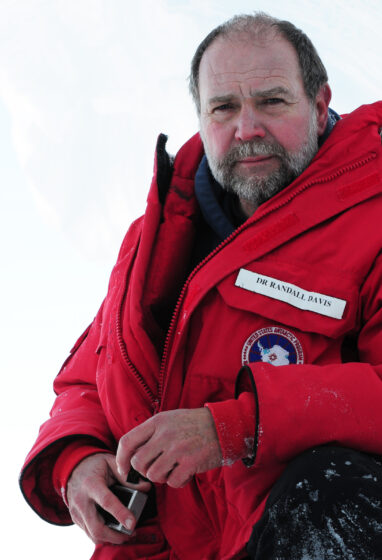 Dr. Randall Davis is a Regents Professor at Texas A&M University. His research focuses on physiological and ecological adaptations of marine mammals for aquatic life. He has emphasized the importance of studying marine mammals in their natural environment and has spent many years developing animal-borne instruments to better understand their behavior, physiology, and ecology. He has trained over 20 doctoral students with the goal of diversity and inclusiveness. In addition, he has engaged in research, education, and conservation efforts to mitigate the detrimental effects of oil spills on marine mammals and advises the oil industry and state and federal agencies on oil spill contingency planning and response. His academic endeavors and over 100 research expeditions have taken him to 64 countries and territories on seven continents and all the world’s oceans. This experience has given him a broad perspective of marine mammal science, its achievements, and future challenges.
Dr. Randall Davis is a Regents Professor at Texas A&M University. His research focuses on physiological and ecological adaptations of marine mammals for aquatic life. He has emphasized the importance of studying marine mammals in their natural environment and has spent many years developing animal-borne instruments to better understand their behavior, physiology, and ecology. He has trained over 20 doctoral students with the goal of diversity and inclusiveness. In addition, he has engaged in research, education, and conservation efforts to mitigate the detrimental effects of oil spills on marine mammals and advises the oil industry and state and federal agencies on oil spill contingency planning and response. His academic endeavors and over 100 research expeditions have taken him to 64 countries and territories on seven continents and all the world’s oceans. This experience has given him a broad perspective of marine mammal science, its achievements, and future challenges.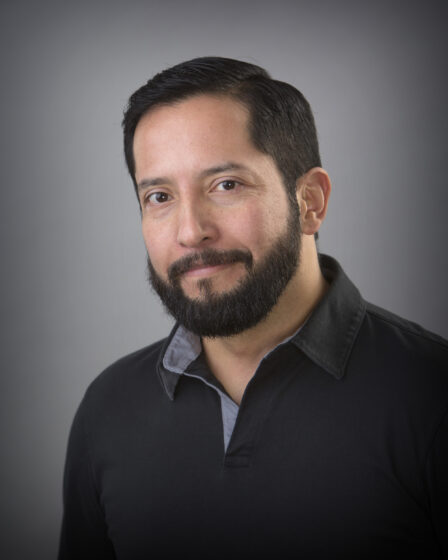 I am currently the Endowed Associate Professor in Whale Habitats at Oregon State University’s Marine Mammal Institute, where I lead the Whale Habitat, Ecology, and Telemetry Laboratory (WHET Lab). My educational background is in Marine Biology (1994, B.Sc., Universidad de Bogotá Jorge Tadeo Lozano) and Oceanography (2003, Ph.D., Oregon State University). I was a NRC Postdoctoral Research Associate based at the NOAA Southwest Fisheries Science Center in Pacific Grove, California (2003-2004), and subsequently a Research Oceanographer at the same location (2004-2013). I was born in Bogotá, Colombia, and moved to the USA to pursue graduate studies. Since 1990, I have attended the biennial Working Meetings of South American Aquatic Mammal Specialists, which later gave rise to SOLAMAC (the Latin American Society of Aquatic Mammal Specialists). I have also participated in several meetings of SOMEMMA (the Mexican Society of Marine Mammalogy). My first SMM Biennial was in Galveston, Texas, in 1993, and I have been a member of SMM since then. Regarding my professional service activities that relate to this position, I have been a member of the Editorial Board of LAJAM (the Latin American Journal of Aquatic Mammals) and served as its Editor-in-Chief between 2009 and 2014. I have also served as a member of the Pacific Scientific Review Group of the U.S. National Marine Fisheries Service, and was also a member of SMM’s Ad-hoc Committee on Diversity and Inclusion. I currently serve as an Associate Editor for Marine Mammal Science, and as a member of the Committee of Scientific Advisors of the U.S. Marine Mammal Commission. Besides my Latin American heritage and perspectives, I identify as a gay man.
I am currently the Endowed Associate Professor in Whale Habitats at Oregon State University’s Marine Mammal Institute, where I lead the Whale Habitat, Ecology, and Telemetry Laboratory (WHET Lab). My educational background is in Marine Biology (1994, B.Sc., Universidad de Bogotá Jorge Tadeo Lozano) and Oceanography (2003, Ph.D., Oregon State University). I was a NRC Postdoctoral Research Associate based at the NOAA Southwest Fisheries Science Center in Pacific Grove, California (2003-2004), and subsequently a Research Oceanographer at the same location (2004-2013). I was born in Bogotá, Colombia, and moved to the USA to pursue graduate studies. Since 1990, I have attended the biennial Working Meetings of South American Aquatic Mammal Specialists, which later gave rise to SOLAMAC (the Latin American Society of Aquatic Mammal Specialists). I have also participated in several meetings of SOMEMMA (the Mexican Society of Marine Mammalogy). My first SMM Biennial was in Galveston, Texas, in 1993, and I have been a member of SMM since then. Regarding my professional service activities that relate to this position, I have been a member of the Editorial Board of LAJAM (the Latin American Journal of Aquatic Mammals) and served as its Editor-in-Chief between 2009 and 2014. I have also served as a member of the Pacific Scientific Review Group of the U.S. National Marine Fisheries Service, and was also a member of SMM’s Ad-hoc Committee on Diversity and Inclusion. I currently serve as an Associate Editor for Marine Mammal Science, and as a member of the Committee of Scientific Advisors of the U.S. Marine Mammal Commission. Besides my Latin American heritage and perspectives, I identify as a gay man.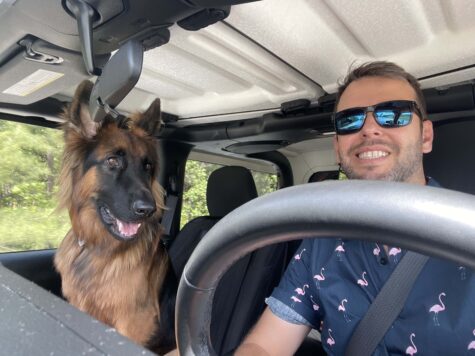
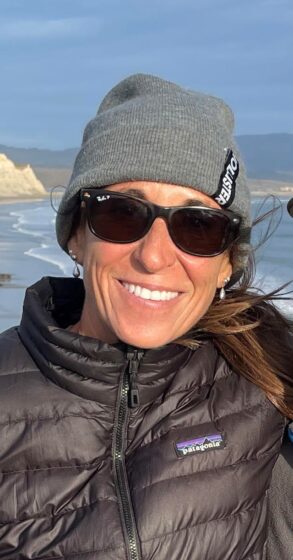
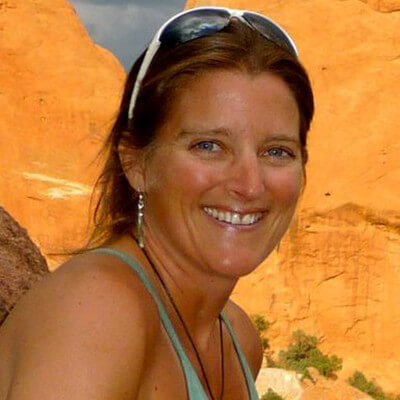 I have been a member of the Society for Marine Mammalogy since 1993. In 2000, I co-founded the SMM Mid-Atlantic Student Chapter and began serving as a Professional Sponsor to the SMM DC Student Chapter in 2015. I currently work with the U.S. Marine Mammal Commission as a Scientific Program Officer and administer their small grant program. I hold an appointment as a Research Associate with the Smithsonian Institution, and I worked for nearly twelve years with the National Museum of Natural History. In addition to my previous position with NOAA’s Alaska Fisheries Science Center, I have had the pleasure to work with many incredible field research teams working in the North Atlantic, North Pacific, and Arctic waters.
I have been a member of the Society for Marine Mammalogy since 1993. In 2000, I co-founded the SMM Mid-Atlantic Student Chapter and began serving as a Professional Sponsor to the SMM DC Student Chapter in 2015. I currently work with the U.S. Marine Mammal Commission as a Scientific Program Officer and administer their small grant program. I hold an appointment as a Research Associate with the Smithsonian Institution, and I worked for nearly twelve years with the National Museum of Natural History. In addition to my previous position with NOAA’s Alaska Fisheries Science Center, I have had the pleasure to work with many incredible field research teams working in the North Atlantic, North Pacific, and Arctic waters. I am a behavioural ecologist with research interests that intersect animal behaviour and distribution, population ecology and evolutionary biology. I am specifically motivated to apply such data to better conserve wild populations and their associated environments. Originally from Germany, I moved to Australia in 2010 to pursue a career in Marine Mammal Ecology via an Honours Degree at Flinders University. Since 2018, I have been working with Prof Karen Stockin at Massey University, New Zealand, across two postdocs and a range of projects focussing on climate change and foraging ecology. After completing a further postdoc at the University of Zurich, Switzerland, with Prof Michael Krützen on the Shark Bay dolphin population, I am currently a postdoctoral researcher at the University of Canterbury, New Zealand, where I work with Dr Michelle LaRue on population dynamics of Weddell seals in the Ross Sea.
I am a behavioural ecologist with research interests that intersect animal behaviour and distribution, population ecology and evolutionary biology. I am specifically motivated to apply such data to better conserve wild populations and their associated environments. Originally from Germany, I moved to Australia in 2010 to pursue a career in Marine Mammal Ecology via an Honours Degree at Flinders University. Since 2018, I have been working with Prof Karen Stockin at Massey University, New Zealand, across two postdocs and a range of projects focussing on climate change and foraging ecology. After completing a further postdoc at the University of Zurich, Switzerland, with Prof Michael Krützen on the Shark Bay dolphin population, I am currently a postdoctoral researcher at the University of Canterbury, New Zealand, where I work with Dr Michelle LaRue on population dynamics of Weddell seals in the Ross Sea.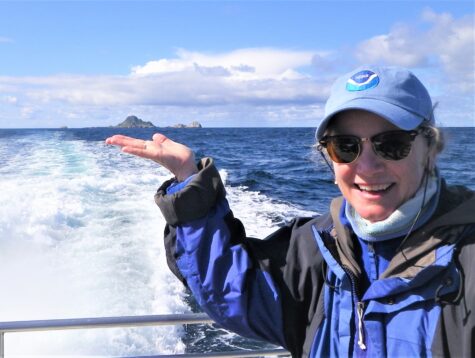 As Research Coordinator for Greater Farallones, Cordell Bank and the northern portion of Monterey Bay National Marine Sanctuaries it is my responsibility to assist marine resource managers in the protection and enhancement of marine and estuarine species within the California Current ecosystem. I promote the restoration and mitigation of marine and estuarine species and habitats through partnering with volunteers, students, independent researchers, academic institutions and other federal and state marine resource protection agencies. I develop, plan and execute complex and integrated projects that provides management information needed for regulatory actions including: Condition Reports, Management Plans, emergency response, natural resource damage assessment, restoration projects, as well as outreach products for students and the public. I identify emerging threats to marine mammals by collecting and synthesizing environmental data to support management actions that will increase resilience from acute and chronic pressures, such as climate impacts.
As Research Coordinator for Greater Farallones, Cordell Bank and the northern portion of Monterey Bay National Marine Sanctuaries it is my responsibility to assist marine resource managers in the protection and enhancement of marine and estuarine species within the California Current ecosystem. I promote the restoration and mitigation of marine and estuarine species and habitats through partnering with volunteers, students, independent researchers, academic institutions and other federal and state marine resource protection agencies. I develop, plan and execute complex and integrated projects that provides management information needed for regulatory actions including: Condition Reports, Management Plans, emergency response, natural resource damage assessment, restoration projects, as well as outreach products for students and the public. I identify emerging threats to marine mammals by collecting and synthesizing environmental data to support management actions that will increase resilience from acute and chronic pressures, such as climate impacts.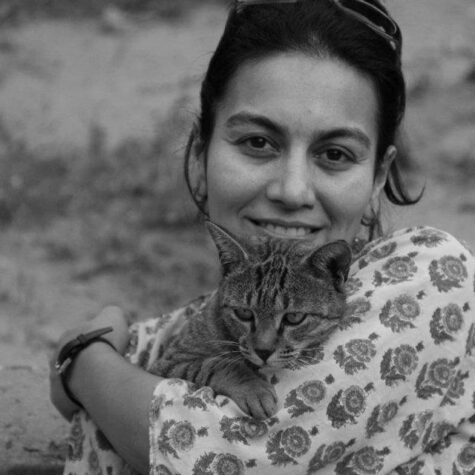
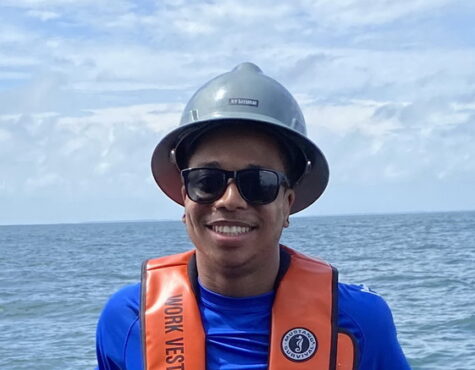 I am a Master’s student at Savannah State University (SSU), a Historically Black College and University (HBCU), advised by Dr. Tara Cox. My thesis research focuses on fine-scale population genetics and photographic identification of common bottlenose dolphins, with the goal of informing management about the complex Bay, Sound, and Estuarine stocks. I first became interested in marine mammalogy during Dr. Cox’s class and then became fascinated with cetaceans during an internship at Duke University Marine Lab in Andy Read’s lab. During this internship, I collaborated with Cascadia Research Collective as well as Duke and learned the value of research networks. I am now working with Dr. Eric Archer at NOAA’s Southwest Fisheries Science Center to gather a deeper understanding of population dynamics and strengthen my research opportunities. I joined the Society for Marine Mammalogy in 2020 and recently presented/attended at my SMM conference in West Palm Beach, FL (SMM 2022).
I am a Master’s student at Savannah State University (SSU), a Historically Black College and University (HBCU), advised by Dr. Tara Cox. My thesis research focuses on fine-scale population genetics and photographic identification of common bottlenose dolphins, with the goal of informing management about the complex Bay, Sound, and Estuarine stocks. I first became interested in marine mammalogy during Dr. Cox’s class and then became fascinated with cetaceans during an internship at Duke University Marine Lab in Andy Read’s lab. During this internship, I collaborated with Cascadia Research Collective as well as Duke and learned the value of research networks. I am now working with Dr. Eric Archer at NOAA’s Southwest Fisheries Science Center to gather a deeper understanding of population dynamics and strengthen my research opportunities. I joined the Society for Marine Mammalogy in 2020 and recently presented/attended at my SMM conference in West Palm Beach, FL (SMM 2022).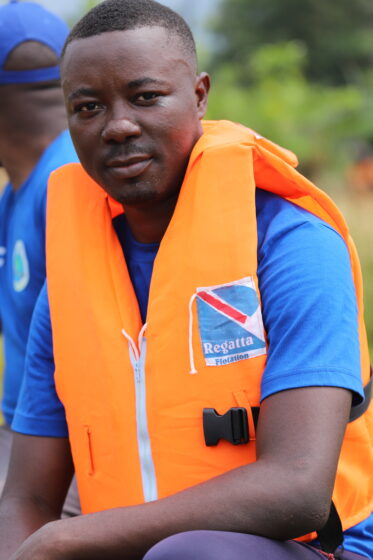
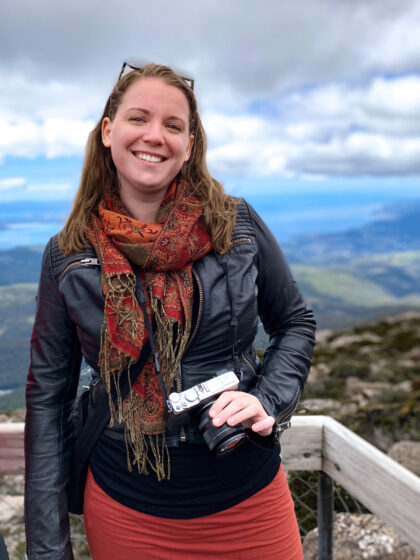 I grew up in Berlin, Germany. After finishing high school in 2010, I moved to Australia with the intent to travel. But as life so happens, this holiday turned into an application for permanent residency and eventually dual citizenship. These days, I get to travel to Germany to visit my family. My academic career started at UQ in Brisbane with a BSc majoring in tropical marine biology. I developed a passion for statistical analyses with a special interest in modelling climate influences on ecosystems. In 2018, I moved to the Hobart to study at the Institute of Marine and Antarctic Studies (IMAS). My honours project ‘Climate influences on female survival in a declining population of southern elephant seals’ was published in 2021. This research gained the highest achievement award of the 2020 IMAS Honours program and the topic has been extended into a PhD project, which I am currently undertaking.
I grew up in Berlin, Germany. After finishing high school in 2010, I moved to Australia with the intent to travel. But as life so happens, this holiday turned into an application for permanent residency and eventually dual citizenship. These days, I get to travel to Germany to visit my family. My academic career started at UQ in Brisbane with a BSc majoring in tropical marine biology. I developed a passion for statistical analyses with a special interest in modelling climate influences on ecosystems. In 2018, I moved to the Hobart to study at the Institute of Marine and Antarctic Studies (IMAS). My honours project ‘Climate influences on female survival in a declining population of southern elephant seals’ was published in 2021. This research gained the highest achievement award of the 2020 IMAS Honours program and the topic has been extended into a PhD project, which I am currently undertaking.